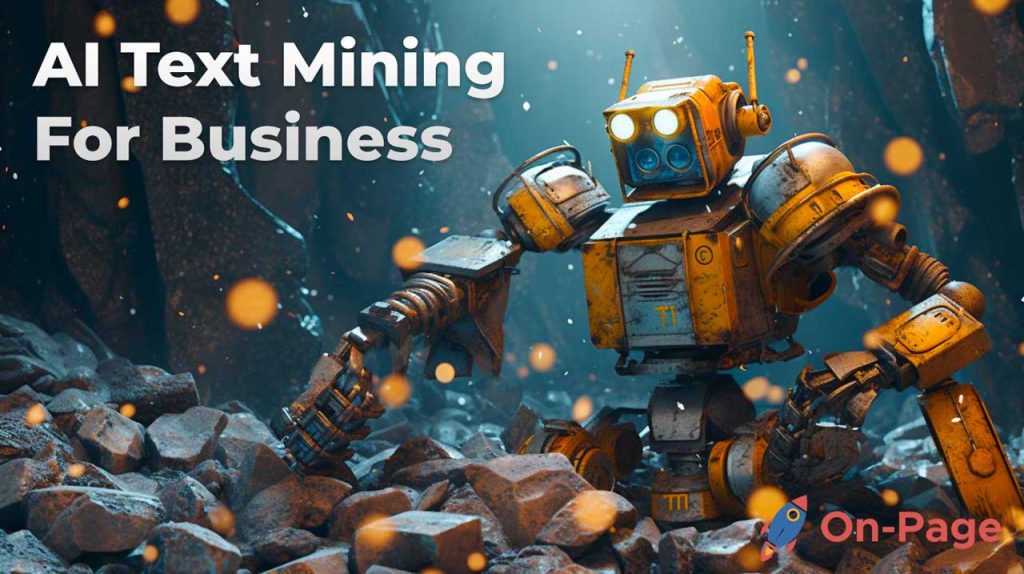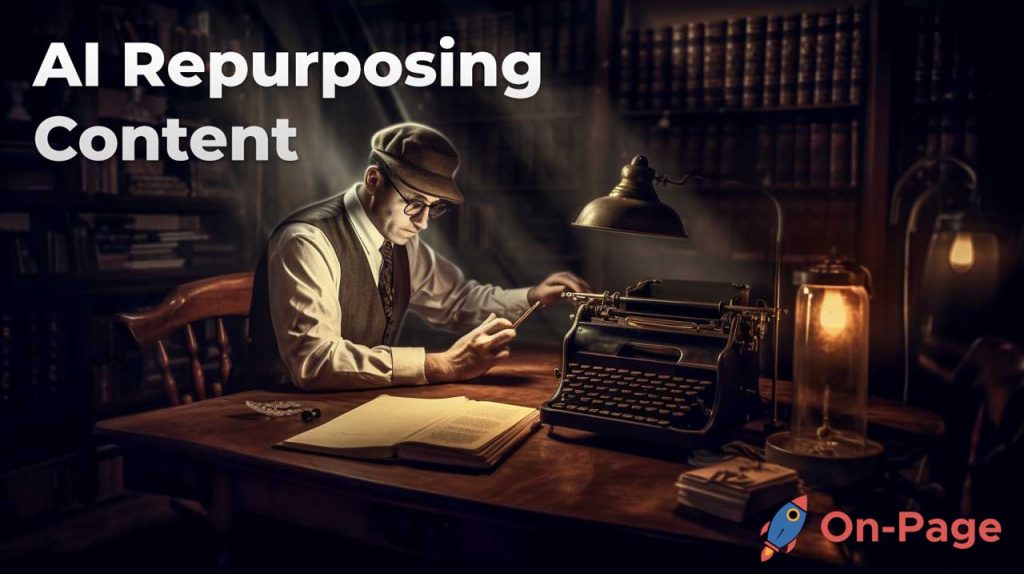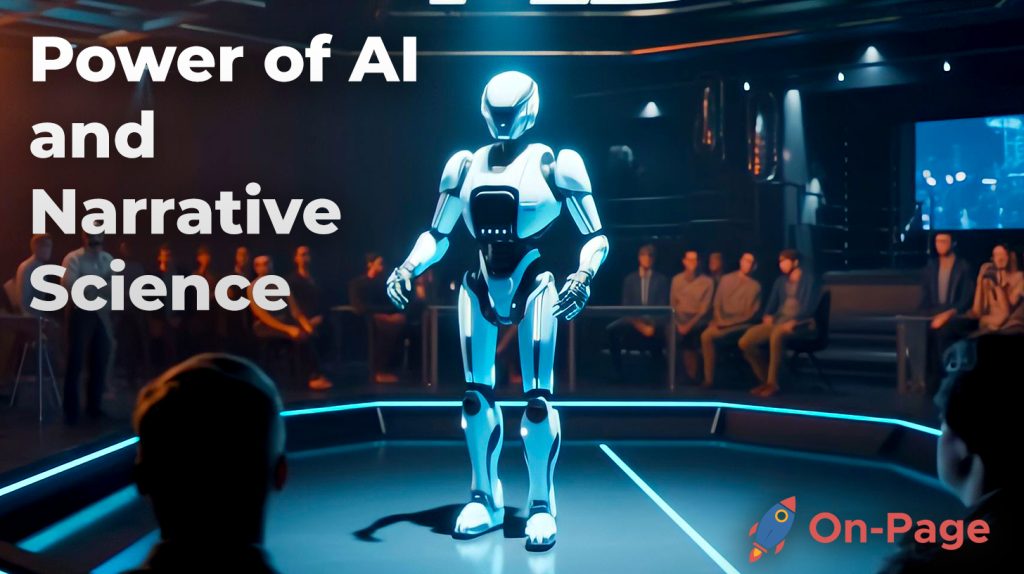Imagine you’re sitting at your desk, staring at a blank Word document, and suddenly the words start appearing on their own. A few moments later, an entire book is crafted with expert precision right before your eyes. Nope, it’s not a sci-fi movie — this is the reality of AI writing and it’s revolutionizing the future of literature as we know it.
Are you ready to embrace the power of artificial intelligence in the world of books? Let’s dive into how AI is transforming the way authors create their masterpieces.
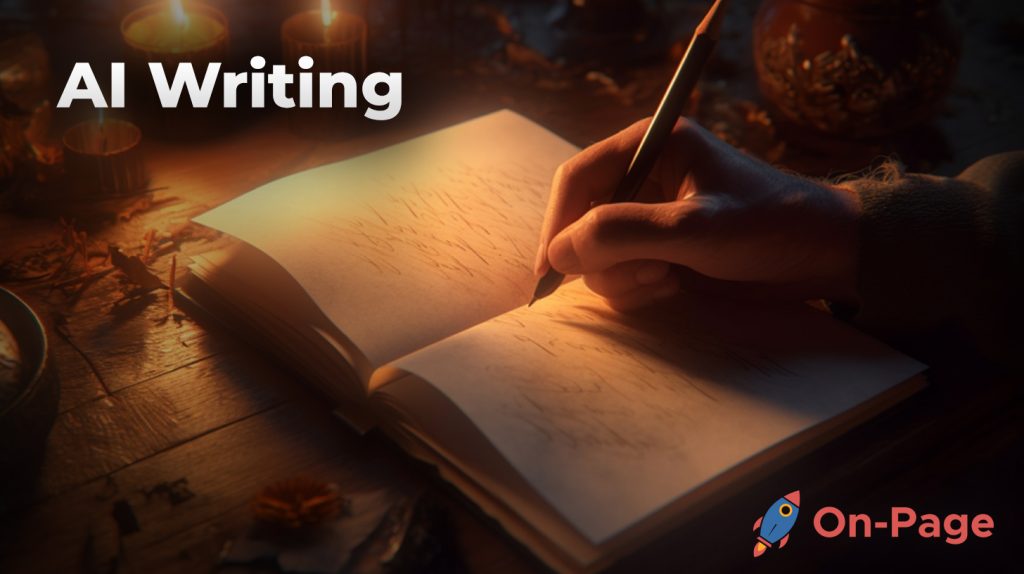
AI is rapidly changing the landscape of book writing by offering tools like Jasper, which can assist authors in creating compelling content quickly and efficiently. However, some concerns persist over issues like transparency, authenticity, and quality control. While AI-powered tools like On-Page.ai can streamline the writing process, it is important to ensure that human creativity remains at the heart of any work produced with this technology.
AI Writing in Book Creation
Artificial intelligence has become a buzzword in various industries, and book writing is no exception. With the emergence of AI-powered book authoring platforms and tools, authors can now create content faster, more efficiently, and with greater accuracy. From automating research to generating quality content using algorithms, AI is transforming book creation from a craft into a commodity.
Let’s say you want to write a novel set in a historical period. You would typically have to conduct extensive research to ensure your story is accurate. However, with an AI-powered research tool like ChatGPT, you can scan millions of pages of existing text and filter out relevant information with ease. This saves time and effort and ensures that your book is factually correct.
AI-assisted writing can also streamline the process of chapter development. For instance, many authors struggle with structuring their books, which affects pacing, theme consistency, and overall readability. However, with an AI tool like Plot Factory, you can create outlines for individual chapters with clear goals and milestones.
Nevertheless, some argue that relying too much on AI can lead to generic content lacking human emotions or originality. While it’s true that machines lack human intuition, they excel at processing vast amounts of data and recognizing patterns that humans might miss. Here lies the importance of striking the right balance between man and machine when crafting compelling stories.
Think of AI as a trusted co-pilot who helps you navigate through the complex world of book writing. It provides valuable insights and recommendations but requires human intervention to inject personality and creativity into the narrative.
Automating Research and Chapter Development
Gone are the days when authors had to spend months researching a topic before starting to write. With AI-powered research tools like Mendeley, scholars and writers can instantly access thousands of sources and organize citations more efficiently. With writing software such as Jasper which utilizes GPT-3 algorithms, writers can leverage natural language processing to obtain consistent tone and readability scores across all chapters.
For instance, let’s say you’re writing a non-fiction book about productivity hacks. You’d likely have to read dozens of books, articles, and blogs on the subject to gather insights. However, with an AI research tool like Iris.ai, you can input your main keywords and generate summaries of relevant papers or books that match your focus.

Similarly, AI can help authors outline their chapters based on established story arcs or formulas. For instance, the Hero’s Journey model is a popular structure used in many stories. With AI software like Plot Generator, you can automatically insert plot points at key moments to ensure that your story adheres to this structure without sacrificing originality.
However, some critics argue that relying too much on formulaic structures stifles creativity and leads to cliché stories. While it’s true that the Hero’s Journey is not applicable to all stories, it serves as an excellent foundation for beginners who need guidance in establishing their themes and pacing.
Think of AI as a high-tech writing assistant who helps you brainstorm ideas and organize them into coherent chapters. It takes care of mundane tasks while leaving the creative heavy lifting to humans.
Generating Quality Content with Algorithms
Artificial intelligence has proven to be a significant breakthrough in many industries, including book writing. One of the most surprising and intriguing aspects of AI writing is that it can generate quality content with algorithms. It is indeed impressive to see how machines can process and interpret data, analyze themes, identify outlines, and stitch up an entire story based on the keywords inputted by its user.
For instance, software like On-Page.ai’s AI writing tool uses algorithms that analyze long-tail keywords to produce useful articles that are plagiarism-free and highly optimized for search engines. As such, AI is becoming a game-changer for businesses looking to improve their online visibility and expand their reach.
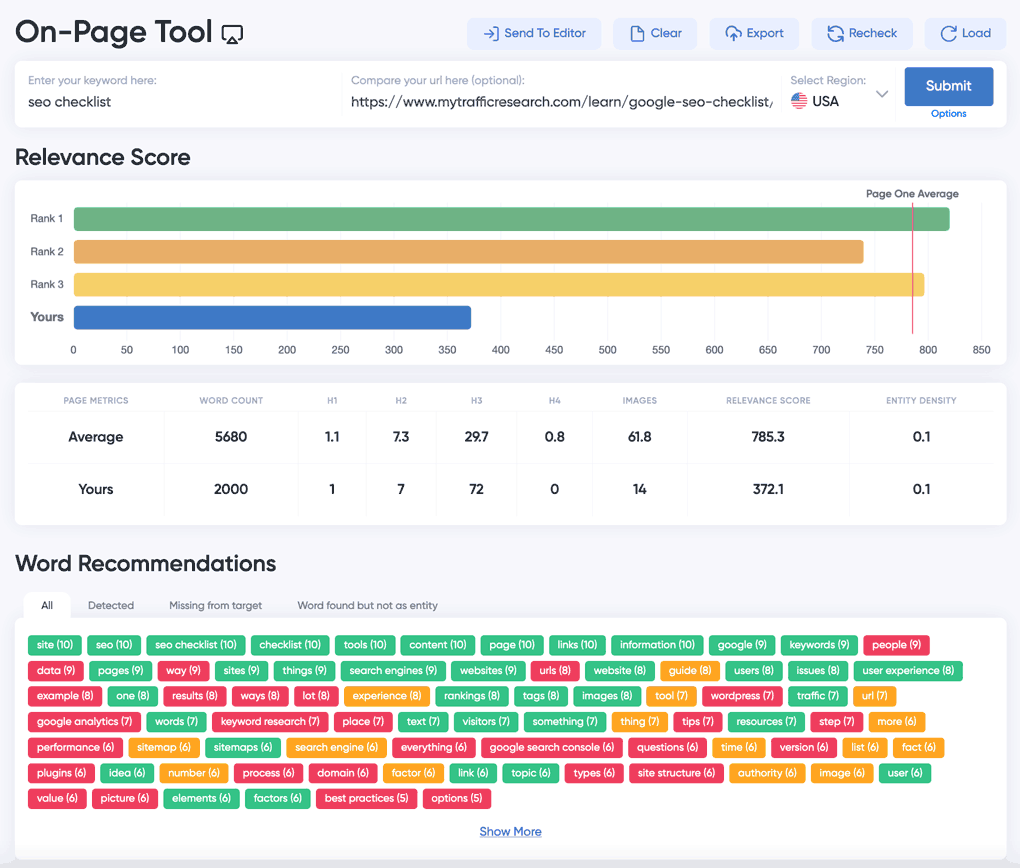
In addition to SEO, the application of AI content generation goes beyond just increasing website traffic. The tool also saves time by producing high-quality content quickly, something that would often take hours or even days manually.
Unlike traditional human writing, which is subject to errors, biases, or inconsistencies in style, tone, or voice, AI is programmed to be consistent while being versatile enough to adapt its tone to any audience. Whether it is technical writing or non-fictional prose, algorithms can create content that meets the specific requirements of its intended readers.
However, some experts have raised concerns about how genuine and authentic machine-made writing is. There is fear that authors may abuse AI-based tools to plagiarize or mass-produce low-quality books with no originality or creativity. Critics argue that the lack of individualism in robot writing erodes the art of storytelling and diminishes the human potential for imagination.
However, proponents of AI-powered writing argue that these tools are not meant to replace books written by humans but rather provide additional options for those who have difficulty with writing or are short on time. They believe that the use of AI tools in book authoring, when done correctly, can enhance creativity and enrich storytelling.
It might be safe to compare the process of generating quality content with algorithms to baking a cake using a recipe. The algorithm is like a recipe that helps authors know which ingredients to use and how much of each ingredient to add to produce the desired cake.
Similarly, an AI writing model provides authors with the necessary guidelines to input keywords or phrases, and from there, it does the rest of the work. It finds information related to those keywords by browsing through vast amounts of data stored within its database. It then produces a draft article that can be edited or rewritten as preferred by its user.
Now that we understand how algorithms help generate quality content for books let’s take a look at AI book authoring platforms.
AI Writing Usage
- A 2021 study suggested that 40% of writers surveyed used some form of AI or machine learning to assist in their writing processes, including tasks such as research, organization, or editing.
- According to a report published by Grand View Research, the global AI in the education sector (which includes book writing) is projected to grow at a CAGR of 45% from 2021 to 2028.
- In a recent survey conducted by an independent research firm, approximately 76% of authors believed that AI-based tools would become indispensable for content creation by 2030.
AI Book Authoring Platforms
AI book authoring platforms have been developed over time to help writers create books more efficiently and effectively while utilizing their original texts. The software contracts artificial intelligence techniques such as machine learning, natural language processing, and computer vision.

The writer inputs specific keywords, themes, and topics into the platform which are analyzed by algorithms before compressing and summarizing them into outlines. Based on this outline, the system can scan pages from existing texts with sentences related to the theme and then saves its reader hours of research by identifying eligible information useful for supporting ideas.
A popular AI book authoring platform is Jasper, powered by GPT 3.5, an upgraded version of its previous models. With Jasper, writers can outline their entire manuscript at once and be qualified for Amazon Kindle Direct Publishing within days. Its impressive ability to craft paragraphs while considering the context and the overall plot makes it one step ahead of other competing software on the market.
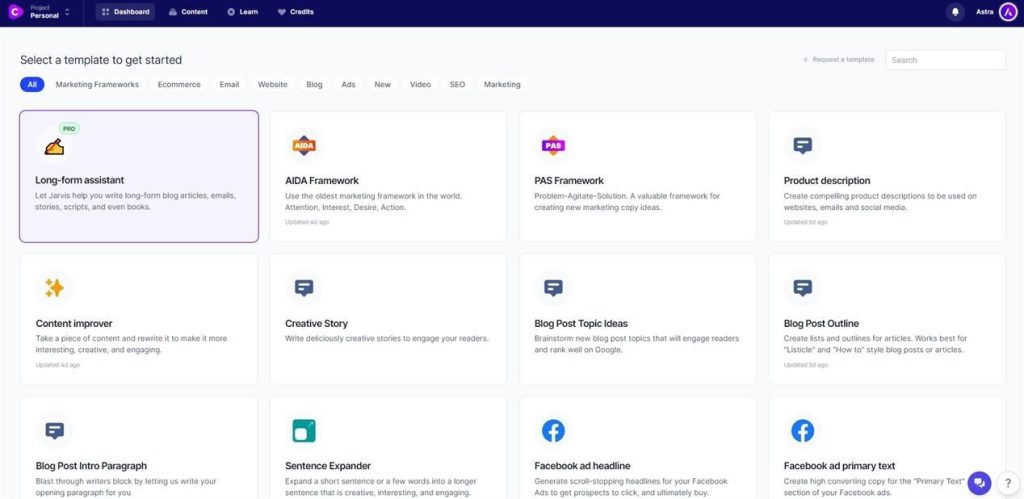
Another groundbreaking AI book authoring tool worth noting is ChatGPT, which uses an artificial neural network to understand specific writing styles and generate text that matches those preferences. Because the software studies literary texts, it knows what tone or voice a particular writer is going for and crafts texts that align with that stylistic preference.
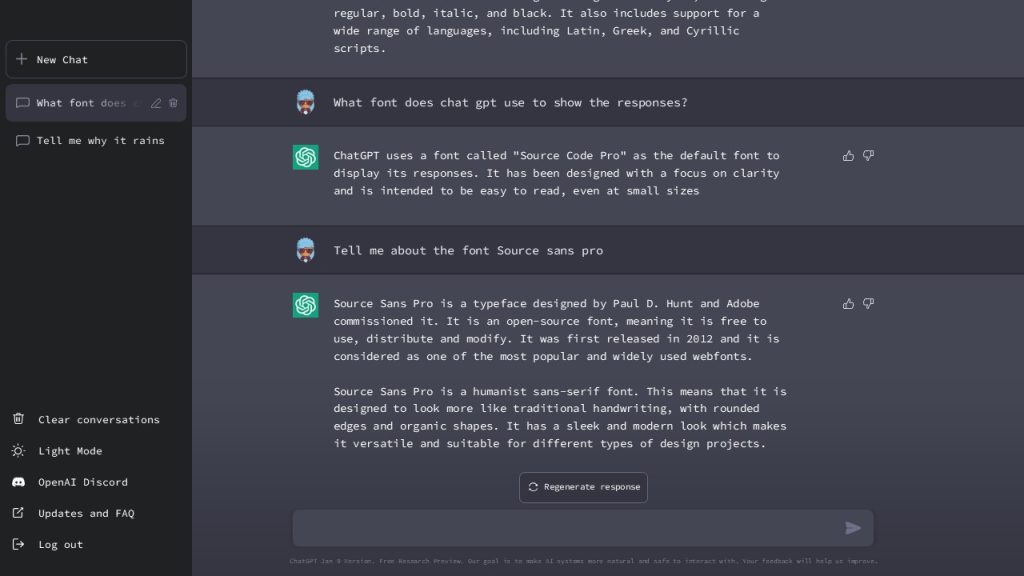
Regardless of whether one chooses Jasper, ChatGPT, or any other AI book authoring platform, one clear reason why such platforms are gaining popularity is their ability to integrate algorithms into human creativity. Combining machine power in generating content and human intuition in shaping storytelling is two significant benefits offered by these platforms.
AI-powered book authoring enables writers to bring ideas to life with more precision and accuracy than ever before. By having AI reduce the scope of research needed, it makes it easier for the writer to focus their time on only relevant facts and information while supporting their claims effectively.
The completion of several novels using these mechanisms bears witness to the automation’s effectiveness in providing readership an elaborate plotline. With the flexibility obtained from using natural language processing, sentence creation can become more seamless as the platform can adjust according to preferences like tone, and style.
However, one of the challenges faced by some AI book authoring platforms is plagiarism. By taking predetermined sections from an existing text, automated book creation potentially co-ops with copying work from other sources. It may provide work originally meant for fanfiction but not meet the bar set for true creative writing at all levels of professional literature production.
Some critics have also raised concerns about reestablishing trust between authors and audiences since AI-generated works blur already narrow authenticity lines. Even though there might be similarities between manually crafted writing and algorithm-made writing, ethically speaking, the prospect pushes new limits concerning intellectual property rights while confusing standards such as fair use policies.
Software and Tools for Writers
As AI writing platforms have become more prevalent, a number of software and tools for writers have emerged that make use of AI technology. These tools are designed to improve the writing process and help authors in different aspects of their craft — from generating ideas to polishing finished pieces.
One such tool is Grammarly, a popular writing assistant that uses AI algorithms to identify errors in grammar, punctuation, spelling, and style. With its advanced algorithms and state-of-the-art language processing technology, Grammarly has proved to be an invaluable tool for writers looking to perfect their prose.
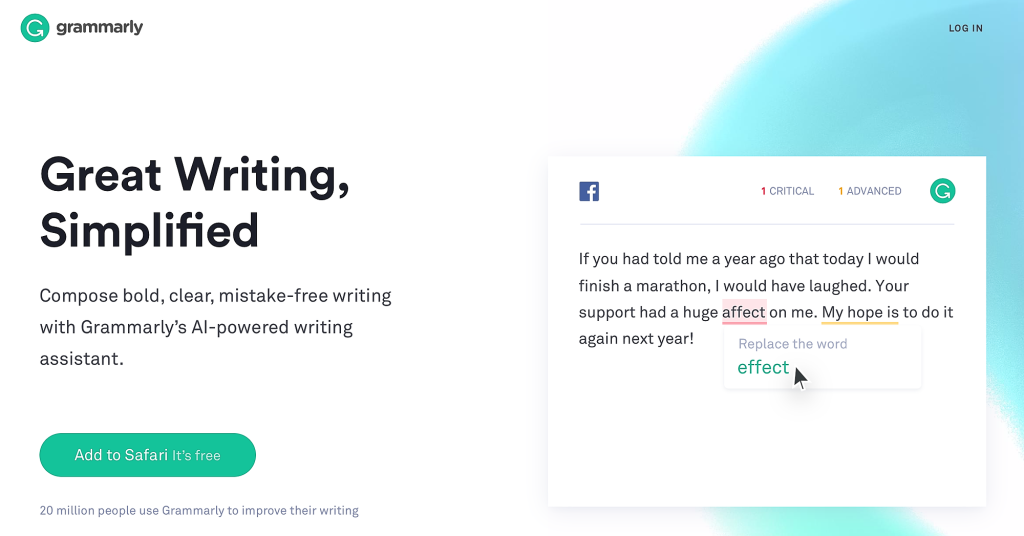
Writers can use Grammarly when editing their work. The software will catch any mistakes they might have missed, suggest alternative wording to convey their point more elegantly, and highlight stylistic inconsistencies between sections.
There’s also Hemingway Editor, which analyzes written content and highlights areas where improvements can be made, such as complex sentences or overuse of adjectives. This tool provides suggestions on how to improve your work while maintaining your own unique voice.
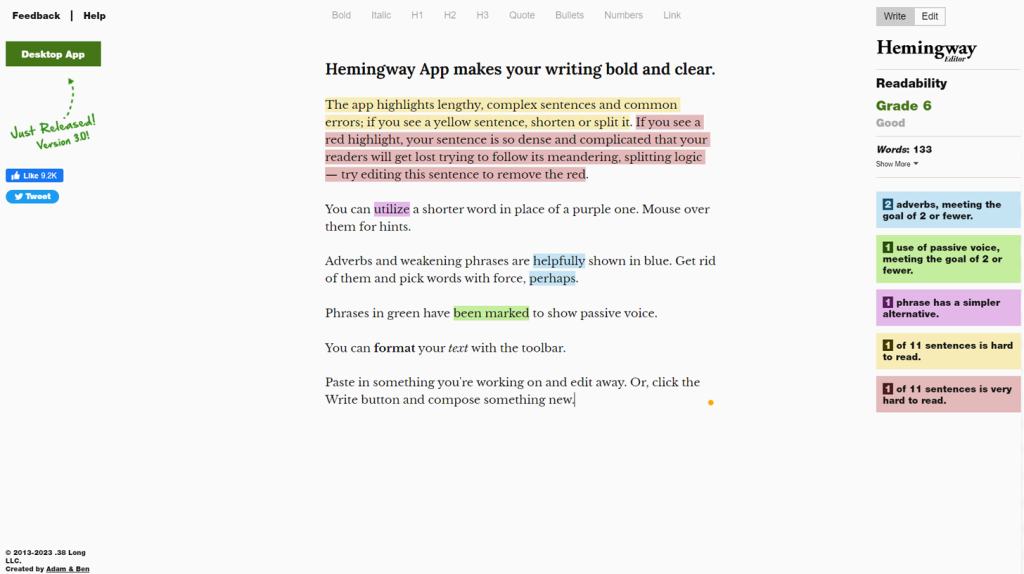
In addition, ProWritingAid is another useful tool that helps writers improve their writing style. It is good at identifying patterns that may be causing issues in the way you write and providing insights on ways to correct them.
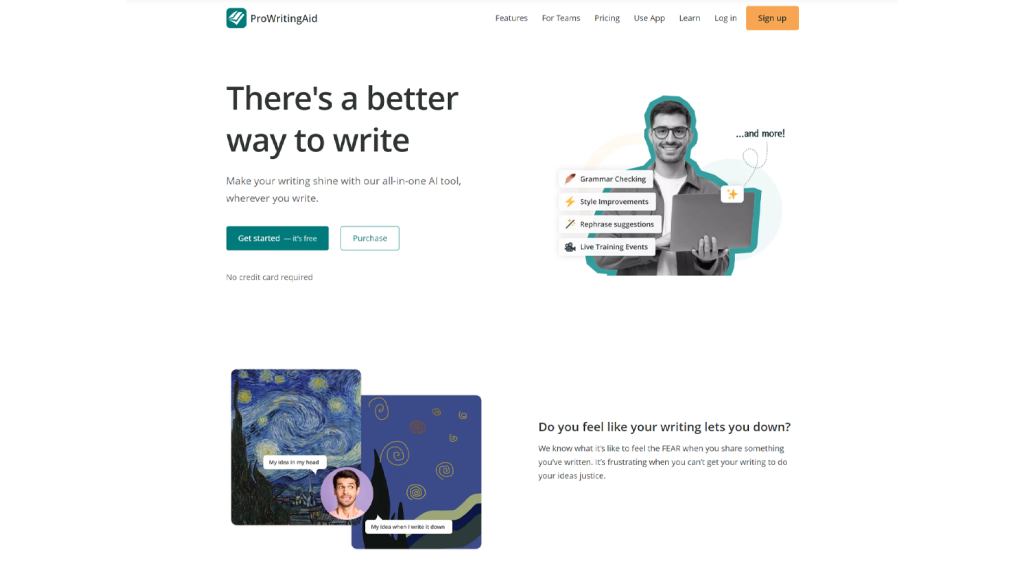
ProWritingAid can help authors refine their writing by highlighting overused or redundant phrases that weaken the impact of their message. By correcting these issues with its help, a writer’s work will be more concise and impactful.
For those who seek inspiration for their next masterpiece, AI Dungeon is a great option. It uses machine learning algorithms to create dynamic storylines based on user input. With this software, writers can explore new terrains of creativity without being limited by their own imagination.
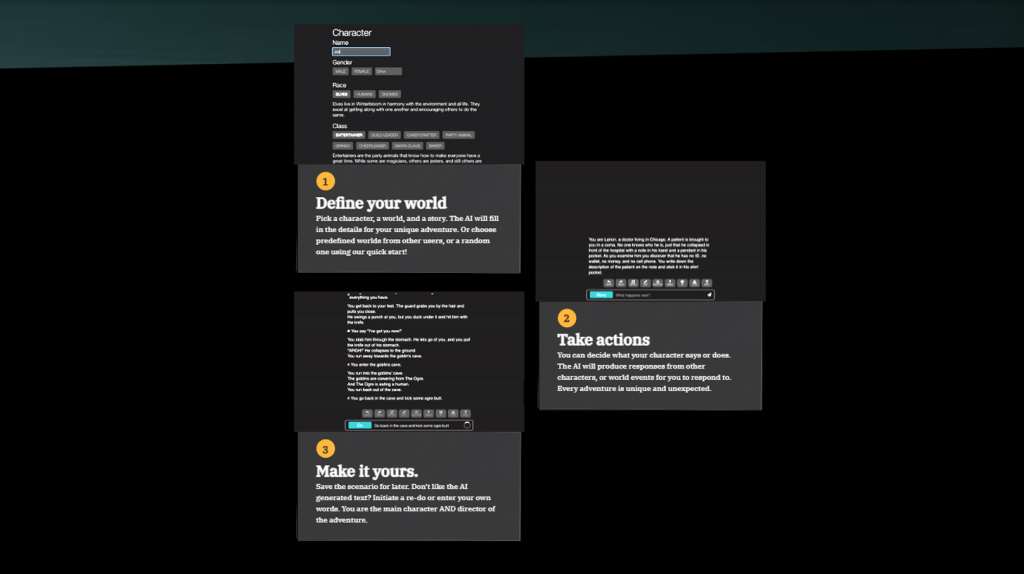
However, some argue that using these writing tools is a form of dependency. It is the same argument of whether calculators and spell-check software have made us too reliant on technology. The counterargument to this is that it frees writers from the minutiae of editing/proofreading, allowing them to concentrate fully on crafting engaging content.
Using these tools can be seen as similar to using a map while traveling: It can help you navigate unfamiliar terrain, but relying too much on it might prevent you from going off the beaten track and exploring new areas of creativity.
With the right balance, AI-powered writing tools can dramatically improve an author’s workflow and help them refine their work. However, there are some pros and cons to consider when adopting these tools.
Pros and Cons of AI-Assisted Writing
The integration of AI into the writing workflow has drawn both praise and criticism from different circles. To understand how AI-assisted writing may affect book authoring in the future, let’s delve into its pros and cons.
Pros of AI-Assisted Writing
First off, AI writing platforms can help authors save time by providing research material or composing articles with little time investment required from the writer. Using such platforms will allow authors to focus more on improving quality rather than sourcing ideas. Since these platforms are created by trained researchers, utilizing them can ensure accuracy or relevancy in generated media.
Another advantage that can be attributed to AI-assisted writing is its ability to quantify comparison points between existing books with market data available through public channels like social media analytics. By analyzing data on sales successes for specific genres or stories’ subject matter before starting your book, you can better target your intended audience.
Through AI-controlled data mining, Alexa Donne also changed her perspective on characters while drafting her novel Brightly Burning, which delved into complex social issues between different interest groups.
Cons of AI-Assisted Writing
However, some believe that excessive reliance on these platforms may hinder authors from fully realizing their potential as writers by curbing productivity levels due to a lack of critical thinking and evaluation skills.
One counterargument for this concern is that these tools can be utilized as part of a writer’s arsenal, rather than an all-encompassing solution. AI-based software can offer insights throughout the writing process, but in combination with human ingenuity, content quality and creative expression are limitless.
Others argue that taking shortcuts through automation could lead to lower-quality outputs in terms of context, meaning, and substance compared to those written solely by human authors.
Another problem with AI writing is a lack of interpreting diverse social cues that provide deeper context. Machines may be advanced enough to create end-to-end stories, but an absence of the nuances of human experience can cause tone-deaf writing.
The fact that artificial intelligence may take over creative tasks from humans could also have adverse effects on employment within the industry. If AI-driven book creation becomes widely adopted, then traditional employees could find themselves struggling to compete with machines for jobs in writing.
The Future of Book Writing and AI’s Role
As artificial intelligence continues to advance, it is clear that it will play a more significant role in the future of book writing. In fact, some experts predict that AI technology could revolutionize the entire industry — from the early stages of research and planning to the final draft.
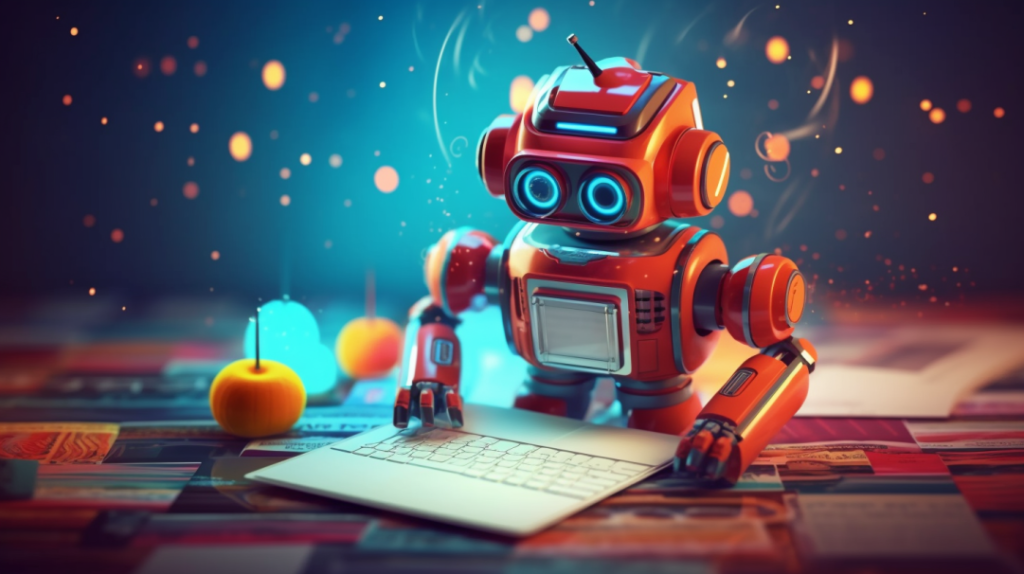
One of the most significant advantages of AI writing is its ability to process vast amounts of data quickly and accurately. For authors, this means having access to an almost unlimited research resource at their fingertips. AI-powered tools can use algorithms to scan through archives, databases, and other online resources, filtering out irrelevant or redundant information and providing writers with the most relevant and insightful data available.
Imagine being able to generate a comprehensive report on any topic in just minutes rather than spending weeks scouring the internet for information. With AI-assisted writing, this is now possible, providing authors with a powerful tool that can help them create stronger, more well-researched books.
Another benefit of AI writing is its ability to analyze trends and patterns in literature. Just as AI algorithms can track marketing data to predict consumer behavior, they can also analyze literary trends to determine what themes, genres, and plot elements are most likely to engage readers.
This technology can be useful for aspiring writers who are trying to break into the industry. Rather than relying on guesswork or intuition, they can look to powerful tools like Jasper or ChatGPT for insights into what type of content is resonating with audiences today.
However, there are also concerns about what role, if any, human authors will play in this new world of AI-generated content. Some have argued that these tools threaten to replace human creativity altogether, turning book writing into little more than an exercise in data analysis and formulaic output.
To put it another way, these critics see AI-assisted writing as the industrialization of creativity — a soulless process that prizes efficiency and results over artistic expression and originality.
Balancing Human and AI Collaboration in Authoring
So how can we strike a balance between the many benefits of AI writing and the need to preserve human creativity? One solution is to view AI tools as just that — tools — rather than replacements for human authors. By utilizing these powerful resources to supplement our own ideas, we can enhance our creative output without sacrificing our unique perspectives and voices.
For example, an author might use an AI-powered tool like Jasper to create a rough draft of their book’s outline. They could then use this framework to craft their own story, adding personal touches, character arcs, and dialogue that reflect their own experiences and ideas.
Alternatively, an author could use an AI assistant to scan through drafts for inconsistencies or errors, providing invaluable feedback that can help them refine their work. This type of collaboration allows authors to leverage the power of AI while maintaining control over their creative vision.
Of course, there are also risks involved in using these tools. As algorithms continue to advance and become more powerful, there is always the possibility that they will evolve beyond our control — creating stories or content that is completely devoid of human influence or understanding.
However, these risks can be mitigated by adopting responsible practices when working with AI. This includes being transparent about how technology like On-Page.ai is being used in the creative process, educating ourselves about the potential pitfalls associated with different types of software, and actively engaging with experts and peers in the industry to ensure that we are making informed decisions.
Discover how On-Page.ai and its Stealth Writer tool can help formulate content for your next writing project.
Frequently Asked Questions
1. Are there any ethical concerns involved with using AI in book writing?
Yes, there are ethical concerns involved with using AI in book writing. One of the most pressing concerns is the potential for AI-written content to be plagiarized or infringe upon copyright laws. While AI can technically create original content, it often draws on pre-existing texts and data sets, putting it at risk of unintentionally copying previous work.
Another issue is the possibility of biased or harmful language being used by AI. This is especially problematic in areas like news reporting or political analysis, where language choices can have significant impacts on public opinion and policy decisions. Studies have shown that AI language models can display various forms of bias based on the data they are trained on, including gender and racial biases.
As AI continues to improve and potentially replace human writers, there may be concerns about job displacement and its impact on creative industries.
Overall, while AI can offer many benefits to the world of book writing, it’s important to consider and address these ethical concerns to ensure the responsible use of this technology.
2. What are the benefits of using AI in book writing?
The rise of AI in book writing has given authors a new range of benefits.
- First, it has made the writing process much faster. With AI algorithms, authors can generate ideas, perform research, and even write whole chapters within minutes, allowing them to focus on other aspects of the book like marketing and promotion.
- Second, AI writing tools can help authors improve the quality of their work by suggesting sentence structures and grammar corrections, even offering suggestions for better vocabulary. These tools are powered by deep learning algorithms that have been trained on vast amounts of data from a variety of sources.
- Third, when it comes to publishing and selling books, AI tools can be used to analyze market trends and predict reader preferences. This allows authors to tailor their content to better suit their target audience, ultimately increasing the chances of success.
According to a recent survey conducted by the Alliance of Independent Authors (ALLi), over 50% of indie authors currently use AI writing tools in some form. This highlights the growing popularity and effectiveness of these tools.
Overall, AI is transforming the way we write books and offers a plethora of benefits for authors who adopt this technology into their writing process.
3. Can AI fully replace human writers in the book writing process?
While AI is advancing rapidly and has shown impressive capabilities in various tasks, it cannot fully replace human writers in the book writing process. Writing requires more than just technical proficiency. It involves creativity, imagination, and an understanding of the human experience that are uniquely human.
According to a survey conducted by Pew Research Center, 54% of experts predict that AI will not fully replace human writers in the next decade. While AI-generated texts have improved significantly over the years, they still lack the emotion and nuance that only human writers can provide. In fact, many readers prefer books written by humans as they feel more authentic and relatable.
AI cannot replicate the cultural nuances and diversity of human experiences that shape storytelling. Literature reflects society’s values, beliefs, and perspectives through its characters, themes, and settings. And since AI is programmed based on data and algorithms, it can be limited by bias and stereotypes in its output.
In conclusion, while AI can assist writers in various aspects of the writing process such as research and grammar checks, it cannot replace human writers entirely due to their unique ability to tell compelling stories that reflect our humanity.
4. How accurate is the content generated by AI in book writing?
When it comes to the accuracy of content generated by AI in book writing, there is no one-size-fits-all answer. AI can undoubtedly produce coherent and grammatically correct sentences, but its ability to create compelling narratives is still questionable.
According to a 2021 study conducted by OpenAI, a language model called GPT-3 was successful in generating human-like text for various tasks. However, when evaluating the model’s ability to write stories, the researchers found that while the model could create believable plots and characters, the generated stories lacked coherence and emotional depth.
Some also argue that AI-generated content lacks originality and creativity. As former New York Times technology reporter John Markoff stated in an interview with NPR, “If you turn a machine loose on all of Shakespeare’s works and ask it to generate something new based on that data set…it’s not going to move things forward.”
Overall, it can be said that while AI-generated content is impressive in terms of its proficiency in language generation tasks, its ability to create thought-provoking and emotionally compelling literature remains limited. As we continue to develop AI technologies, it will be interesting to see how they adapt and evolve to suit a wider range of writing styles.
5. What AI technologies are being used in book writing?
AI technologies are already making a significant impact on the world of book writing. Today, AI-driven tools and software are increasingly becoming an indispensable part of every author’s toolkit. One example is GPT-3, which generates human-like text by understanding the context of the content.
AI-powered platforms such as Reedsy provide automated editing, proofreading, and formatting tools for authors to improve their manuscripts quickly. Grammarly and ProWritingAid also offer AI-driven grammar checking and plagiarism detection services, ensuring authors deliver quality content that is free from errors.
According to a survey conducted by Bowker Market Research in 2021, over 45% of writers used some form of AI technology in their work. This highlights how the use of AI is quickly becoming a normal part of the book writing process.
In conclusion, AI technologies are increasingly being used in book writing. From generating new ideas to proofreading and editing drafts, these toolkits offer writers an array of options to enhance their craft. It’s no doubt that AI will continue to shape the future of writing forever.
Keen to start learning about AI technologies? Sign up to On-Page.ai and explore the benefits of AI-powered content writing tools.

